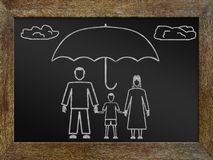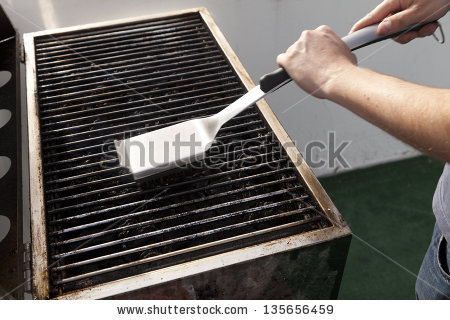Transportation Network Companies
TNC/Ridesharing has become a popular trend over the past year. However, many consumers have unanswered questions when it comes to ridesharing and insurance.
What is a “TNC”?
TNC stands for “Transportation Network Company”. TNC’s are the companies that offer a ridesharing service. Companies such as Uber and Lyft are examples of popular “TNCs”.
What is “Ridesharing”?
Ridesharing is the use of a personal, non-commercial, privately owned vehicle to provide pre-arranged transportation to others. Passengers request a ride though the Transportation Networks app.
What is a “TNC Driver”?
A TNC Driver is someone who uses their personal, non-commercial vehicle to provide rides for others.
Who must provide insurance for the TNC Driver?
New York State law requires that a TNC provide primary insurance coverage for their drivers through a group policy. TNC drivers are able to obtain their own insurance but must meet the same insurance requirements as the TNC is required to provide.
What are the required minimum limits of insurance?
Bodily Injury Liability: $75,000/$150,000
Property Damage: $25,000
Uninsured Motorist: $25,000/$50,000
Personal Injury Protection $50,000
Will the TNC Driver’s personal automobile policy provide physical damage coverage?
No! The TNC driver’s personal automobile policy will only provide physical damage coverage if an insurer provides the coverage for a TNC drivers vehicle through an endorsement.
Is there an age and licensing requirements to become a TNC driver?
Yes, New York State law requires that TNC drivers must be at least 19 years old and hold a valid and current New York State driver’s license issued by the New York State DMV.
Are there any requirements to become a TNC driver?
Yes, the New York State DMV requires that the TNC conduct a criminal history background check along with a review of the applicant’s driving record. TNC’s must also verify that the applicants vehicles are properly registered and inspected.
If you are a TNC driver or are thinking of becoming one and have questions regarding your insurance, please give us a call at (516) 249-5200 and one of our automobile specialist will be happy to assist you.
#NewYorkCentralMutual
Life Insurance Awareness Month: Policy Beneficiary
No one likes to think about dying, but when it comes to life insurance, you need to figure out who will get your money when it is your time. It is important to know what a beneficiary is and how your life insurance policy works after you are gone.
September is life insurance awareness month and C.H. Edwards, Inc. is here to help you understand the basics of life insurance.
What is a Beneficiary? Beneficiary is a term in a life insurance policy contract that recognizes who receives the benefits after a person’s death. The primary beneficiary is the first person who receives the benefits after you have passed. If your primary beneficiary is deceased, your contingent beneficiary would then receive your benefits. A contingent beneficiary is also known as your secondary beneficiary.
How to choose your beneficiary? Choosing the right beneficiary is important, but can also be challenging. Consider who you want to help after you are gone. This could be a spouse, child, niece, nephew, etc.. In short terms, your beneficiary should be someone you can trust with your money after you are gone.
It is never too early or too late to purchase a life insurance policy. Nearly 40% of consumers in the United States do not have life insurance coverage. Don’t wait another day!
For more information on life insurance, please give us a call at 516-249-5200.
Do you have a family emergency plan?
Everyone needs to be prepared for the unexpected. You, as well as your family and friends, will most likely not be together when a disaster strikes. How will you find each other? Will you know if your children or parents are safe?
Here are steps to take before a disaster happens to ensure you and your loved ones will be safe:
- Post emergency telephone numbers near the phone.
- Install safety features in your home, such as smoke alarms and fire extinguishers.
- Inspect your home for items that can move, fall, break or catch fire and correct them.
- Have your family learn basic safety measures such as CPR and first aid, how to use a fire extinguisher and also how to turn off the main’s to your gas, water and electric in your home.
- Teach children how and when to call 911 in the event of an emergency.
- Prepare an emergency supply kit. Here are some important items to consider:
- At least a 3-days’ supply of water (one gallon per person per day).
- At least a 3 days’ supply of non-perishable food.
- One change of clothing and shoes per person.
- One blanket or sleeping bag per person.
- First aid kit.
- Batteries.
- Emergency tools.
- Flashlight.
- Extra set of car keys.
- Credit card and cash.
- Special items for infants, elderly or disabled family members.
- Prescription and non-prescription medications.
Last but not least, practice and maintain your plan with your loved ones.
Tips for Cleaning Your Grill
It’s that time of year again, where your dinner and party plans have you heading to your kitchen instead of the grill.
Before you shut down and pack up the grill for the season, it is important to clean your grill to prepare it for storage and next year’s use.
Here are some helpful tips:
- Use a warm bucket of water and soap with a steel brush to clean your grill.
- Avoid using abrasive cleaners and tools. This could reverse your essential goal and harm your grill!
- Clean up all oil spills and food drippings.
- Once you have scrubbed all of the dirty areas, be sure to wipe everything down one more time with your warm soap water.
- Purchase a protective case/cover for your grill. This will help avoid damage and rust over the winter months.
- Store your grill somewhere safe and dry. Perhaps your shed or even under your deck.
Simple end of the year cleaning will go a long way when it comes to ensuring the life of your grill.
Planning The Perfect Family Picnic
Taking the family on a picnic is an excellent way to get fresh air and enjoy some of the last days of the summer season before the kids head back to school. The ingredients for an unforgettable picnic, however, involve more than just good food. Picking a great location and preparing extra activities can elevate your picnic from boring to amazing.
Choose a memorable location. Having a picnic at a nearby park is a safe choice but choosing a location with interesting features can make your trip unforgettable. Try a local beach or hiking trail.
Work together on the food. Working with your family to create a menu for your picnic is a great way to get everyone involved and make sure everyone has something to eat that they really love.
Bring along activities. Picnics can be about more than just food. Bringing some outdoor activities with you is a great way to extend your outdoor trip and make it extra special.
Take plenty of pictures. A family picnic offers a great opportunity for some fun pictures together. Although smart phone pictures are easy to snap, don’t forget to take some pictures with your digital camera to print later.
Don’t leave home without the essentials. If you forget a few essentials items such as water bottles or sunscreen for everyone, your picnic may quickly turn from fun to disastrous. Prepare a checklist ahead of time to avoid forgetting anything.
End this summer season unforgettably before the hustle and bustle is back for the school year.





